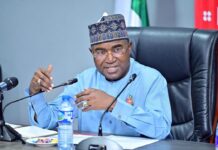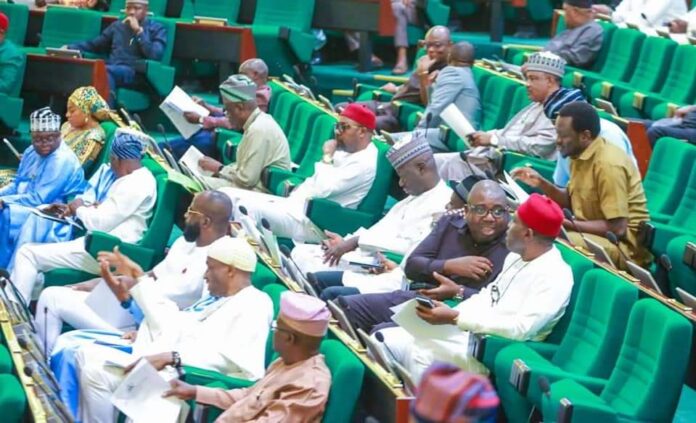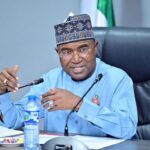- House closes for annual vacation, reconvenes Sept. 20
The House of Representatives has called for urgent reawakening in implementing the various malarial control projects backed with global support funds in a bid to stamp out the disease from the country.
It said this would also ensure that Nigeria was not cut off from accessing such funds.
The House on Wednesday in Abuja, expressed worries over a recent report by the Office of the Inspector-General of the Global Fund, indicating that performance by Nigeria’s National Malaria Elimination Programme (NMEP) had dropped from B1 rating to B2 rating.
It called for immediate measures to step up the country’s malaria control measures.
The House resolution followed a motion moved by Rep. Benjamin Kalu and two others.
The others were Rep. Abubakar Dahiru and Rep. Yusuf Tanko Sununu.
The House specifically urged the
” Federal Ministry of Health, the National Malaria Programme, and other relevant Ministries, Departments and Agencies to comply with the resolution to prioritize local content when procuring Malaria Commodities using funds from the IMPACT Projects facility.”
It also invited “the Leadership of the National Malaria Programme to explain by defective mosquito nets are still being procured, imported and distrusted in Nigeria against World Health Organisation Standards and Local Content directives from the House.”
The resolution further mandated the “Committees on HIV/AIDS, Tuberculosis and Malaria Control, Healthcare Services and Health Institutions to investigate the late/non-disbursement of the IMPACT Project funds, the alleged underperformance and down rating of the National Malaria Elimination Programme (NMEP) by the Office of the Inspector General of the Global Fund and the procurement and distribution of non-approved mosquito nets across the country and report back within six (6) weeks for further legislative action.”
Wednesday’s plenary of the House was presided over by the Deputy Speaker, Rep. Ahmed Idris Wase, in the absence of the Speaker, Rep. Femi Gbajabiamila.
The detailed motion that led to thrle resolution, reads, “The House notes that Nigeria accounts for 27 percent of malaria cases and 31 percent of malaria deaths worldwide, with malaria killing no fewer than 200,000 Nigerians and afflicting 61 million others in 2021 alone;
“Also notes that despite efforts to contain malaria, Nigeria loses over $1billion (N645.7billion) yearly in the prevention and treatment of the disease as well as other costs;
“Aware that Nigeria has over the years made notable progress in scaling up and impact of malaria interventions as regards the utilization of mosquito nets for children less than five years has increased significantly from 6% to 49% and parasite prevalence reduced from 42% in 2010 to 23% in 2018;
“Also aware that the National Malaria Elimination Programme (NMEP) is the body responsible for formulating and facilitating policy and guidelines, coordinating the activities of partners and stakeholders on malaria control activities, providing technical support to states malaria programs, Local Government Areas and stakeholders, mobilising resources, monitoring and evaluating progress and outcomes in malaria elimination efforts across the country;
“Concerned by a recent report from the Office of the Inspector General of the Global Fund, indicating that NMEP has fallen from a B1 to B2 rating within 6 months, which undermines Nigeria’s shot at accessing future grants and partnerships in the fight to eliminate Malaria;
“Also concerned that considering that Nigeria is one of the biggest beneficiaries of the Global Fund grant with a value of $412 million, the country is at risk of losing the grant and other partnership opportunities as a result of poor absorption, poor performance and lack of domestic resource mobilisation;
“Further concerned that the poor performance by NMEP has caused the World Health Organization (WHO) to neglect Nigeria in favour of Ghana, Kenya, and Malawi for the rollout of the RTS-Sj AS01 malaria vaccine;
“Mindful that with the onset of the rainy season, Nigeria is in dire need of malaria interventions;
“Recalls that on December 2, 2020, the Federal Government inaugurated the National Steering Committee of World Bank Supported Immunization Plus and Malaria Progress by Accelerating Coverage and Transforming Services Project (IMPACT), which is a $300 million project facility designed to fast-track government’s intervention in malaria to reduce under-five mortality in the Nigeria for 13 beneficiary states;
“Worried that almost 2 years later, despite the preparedness of the World Bank and the Islamic Bank to disburse the funds, the IMPACT Project is yet to commence;
“Also worried that in the past year, non-approved mosquito nets have been procured and distributed in Nigeria without any rejection by the leadership of the National Malaria Programme despite a resolution by the House of Representatives calling for the prioritization of local content in the procurement of Malaria commodities;
“Disturbed that if nothing is done to address the underperformance of NMEP and improve the quality of malaria interventions in Nigeria, the country will continue to lose huge sums annually as well as thousands of lives.”
Meanwhile, the House adjourned for annual vacation on Wednesday.
It will reconvene on September 20, 2022.



















